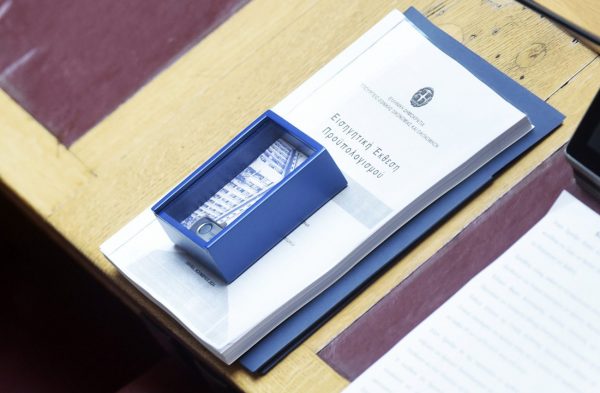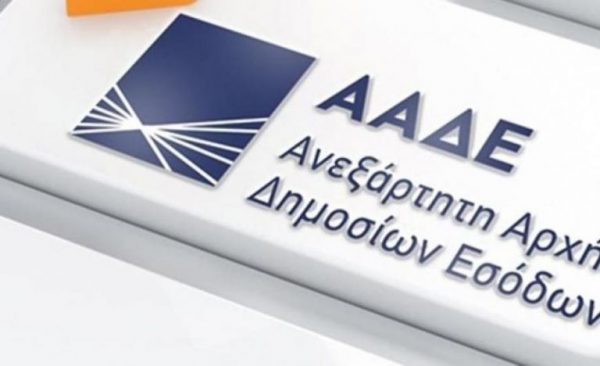
What are the “double” and “joint” degrees that are entering students’ everyday lives? And what are “major” and “minor” degrees? The answers to these questions can be found in the Ministry of Education’s new framework law put to public consultation, which may include a new model of administration that is subject to a number of challenges, but also contains a number of innovative changes.
Thus, the “double” degree consists (at least) of two different degrees awarded to a student upon successful completion of the programs. The double degree must also be signed by the competent authority of the institution concerned and should be officially recognized in their countries.
A “joint” degree, on the other hand, is one in which a person studies two different subjects (double specialization) at the same time, which are then combined into a joint degree. This degree must also be jointly signed by the competent authorities of two or more participating institutions and must be officially recognized in their countries.
But how will the above be implemented in higher education, in Greece ? As the bill states, “departments of the same or another higher education institution may organize dual first cycle degree programs (dual majors) leading to the award of two equivalent first cycle degrees in two distinct subjects”.
In particular, the duration of the dual degree program will be at least two years longer than the duration of the other first cycle degree programs and the educational activities will correspond to a total of three hundred and sixty (360) ECTS credits. These programs may be instituted by decision of the senate of each higher education institution or other partner universities upon the recommendation of the partner departments assemblies.
The law stipulates that if the partner departments are located in a different regional unit, there is the possibility of organizing the educational process by distance learning, but only the 30% of the curriculum of the department located outside the city.
At the same time, it will now be possible to organize double foreign-language study programs between Greek universities or between departments of the same institution, leading to the award of two equivalent first cycle degrees in the same or different subjects. In this case too, the duration of each program will be increased by at least two years.
Major and minor programs
As reported to the journal TA NEA, departments or single-schools faculties of higher education institutions may organize, in parallel with their first cycle degree programs, a special minor degree program in the scientific field of the department or the single-school faculty.
The duration of the “minor” degree program shall be defined as a minimum of one academic year and the educational activities shall be equivalent to at least 60 ECTS credits. Minor degree program shall be offered exclusively to registered students from other departments of the same higher education institution who are enrolled in the first cycle degree program and have completed 90 % of the total number of credits of the program they are studying.
Successful completion of the minor program will lead to the award of a distinctive title by the department in which it is organized. A prerequisite for the award of the title is the completion of the curriculum of the first cycle degree program in which the student was enrolled.
The maximum period of study in a minor program will be the duration this program in the department in which the candidates were originally enrolled plus one academic semester and it is not counted in the maximum period of study.
Latest News

Economist: Greece Included in the Best Performing Economies in 2024
Meanwhile, Northern European countries disappoint, with sluggish performances from the United Kingdom and Germany.

EasyJet Expands Its Routes from Athens
The airline’s two new routes will be to London Luton and Alicante and they will commence in summer 2025.

Capital Link Forum Highlights Greece’s Economic Resurgence; Honors BoG Gov Stournaras
Capital Link Hellenic Leadership Award recipient, Bank of Greece Gov. Yannis Stournaras, an ex-FinMin, was lauded for his pivotal role during Greece’s economic recovery

Tourist Spending in Greece Up by 14%, Visa Card Analysis Shows
Greece’s capital Athens emerged as the most popular destination, recording a 17% increase in transactions with Visa cards, surpassing even the cosmopolitan island of Mykonos.

Inflation in Greece Unchanged at 2.4% in Nov. 2024
The general consumer price index (CPI) posted a 0.4% decrease in November compared to the previous month

2024 Christmas Holidays: Extended Shop Hours Schedule
The 2024 Christmas Holidays extended shop hours schedule commences on Thursday, December 12 and runs until the end of the year.

ELSTAT: Seasonally Adjusted Unemployment Down in October
The number of employed individuals reached 4,284,694, an increase of 67,723 compared to October 2023 (+1.6%) and 22,002 compared to September 2024 (+0.5%).

Greek PM’s Chief Economic Adviser Resigns
In the post on his Facebook page, Patelis did not disclose the reasons that led him to step down.

“Masdar Invests in the people of Greece and in the vision of TERNA ENERGY”
Four messages from the CEO of Masdar, the Arab renewable energy giant, after its acquisition of 70% of TERNA ENERGY

Lloyd’s List Greek Shipping Awards 2024: Honors for leading companies and personalities in the Greek shipping sector
20 awards presented at the 21st annual Lloyd's List Greek Shipping Awards


















![Χειμερινή εξοχική κατοικία: Οι Ελληνες γυρνούν την πλάτη παρά την πτώση των τιμών [γραφήματα]](https://www.ot.gr/wp-content/uploads/2024/12/Capture-19-90x90.jpg)























 Αριθμός Πιστοποίησης Μ.Η.Τ.232433
Αριθμός Πιστοποίησης Μ.Η.Τ.232433